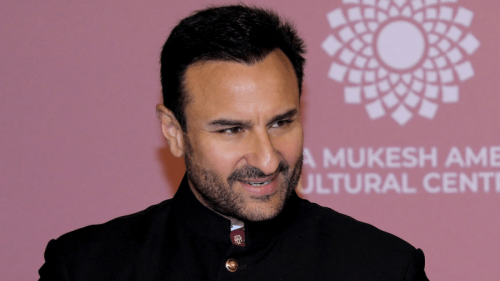
SHE had come home for vacations. Asma Rani, a medical student, was studying at a medical college in Abbottabad. She was in her third year, only two years shy of becoming a full-fledged doctor. In pictures, she smiles at the camera, shy but also confident and completely unaware of the horror that would define her last moments.
Those last moments, captured on video and played on social media screens, are terrifying ones. In them, the young and dying Asma Rani, who has just been shot, says the name of her murderer, Mujahid Afridi. It takes everything she has left.
We know that Asma Rani, shot because she did not accept a marriage proposal, would not live for much longer after the video was made. Her life would end, like the lives of so many other young girls in Pakistan, simply because she did not bow to the wishes of a man.
Few pause to consider the culpability of a society that collectively believes in male entitlement.
Within a day, her body lay in front of a male-only gathering in Lakki Marwat, her ancestral village, and she was buried.
Explore: The Pakistani woman — Where does she stand and where is she going?
According to reports that are routinely issued after such a crime is committed, police began to carry out raids in the area soon after the murder. These raids, however, were utterly useless. Asma’s assailant, Mujahid Afridi, reportedly a relative of a local leader of the PTI, had fled.
Some local people maintained that Afridi went to the Gulf, where he has business interests. Police officials have since revealed that he has fled to Saudi Arabia. There was no information at the time of writing regarding any efforts to locate him within that country or if any Saudi officials had been contacted. When police routinely avoid catching the killers of women, even those who are actually in Pakistan, one doubts that any efforts will be made to arrest the killers that have fled the country.
Indeed, if convictions are any evidence of beliefs and truths, killing a woman is not a crime in Pakistan. Before Asma Rani was killed with such impunity in front of her sister-in-law, allowed to die at the hands of a man who believed he was entitled to marry her, to punish her for her refusal, there have been others, even in Kohat, the small town where the crime happened.
Almost exactly one year ago, an M.Phil. graduate named Hina Shahnawaz was also killed. Shahnawaz, who worked with an NGO, supported her widowed mother and her sister-in-law who lived with them after the death of her brother. Her killer was a cousin named Mehboob Alam, who, like Mujahid Afridi, immediately fled the scene. His gripe? The fact that Hina had rejected his marriage proposal and that she dared to work outside the home. Alam was eventually apprehended and convicted, but this was an aberration in such cases. Scores of others get away scot-free.
Also read: Hina Shahnawaz's murder shows Pakistani men won’t let women break free of social norms
Two years, then, two murders, and two women who were silenced, their potential and their future erased by men raised by society to believe that women could never say no to them. Even while the airwaves and newspapers of the country have been rife with outrage over the death of an innocent young girl, few have paused to consider the culpability of a society that collectively promotes and believes in male entitlement.
It is this last bit, about male entitlement, via which the males of the nation believe that no one, especially no woman, can ever say no to them for anything, that undergirds all the acts of criminality being carried out against women and children.
Despite the gruesome and chilling nature of Asma Rani’s murder, the terrifying video of what were her last moments, it is undoubted that many will blame the victim: a girl who goes away to study in another city, a girl who says no to a man, is, in Pakistan, a girl who is ‘asking for it’, who is guilty. Asma Rani and Hina Shahnawaz were killed, but those who manage to live also suffer, the living dead of a society that does not believe in their right to have choices, in their right to say no.
So, as with Zainab and Hina and so many others and the many more that will perish, no justice is expected. The police will posture, the politicians will pander and nothing will change. One resolution “condemning the killing” has already been passed in the Khyber Pakhtunkhwa Assembly; a few more may be passed. False assurances will be given, and some men will pretend that they feel bad about this, the latest in Pakistan’s War on Women. Nothing significant, nothing really substantial and nothing having the potential to deliver justice, to make an example out of the culprits, will take place.
In the Pakistan of 2018, hope for change is hard to find. It is hardly ever the killers of women who are made into examples, with no punishment meted out to them and no public shaming of them as a message to other men who cannot tolerate women who say no. Instead, it is always women, forever women, who pay for a society that has no room for their voices or for their volition.
While the world is in the throes of movements that shame men who exploit and harass and humiliate women, Pakistan continues to insist on their lesser humanity, the denial of their dignity. Asma Rani died for this. In any other country this would be a tragedy; in Pakistan it is routine, just the way things are, the way men want them to be.
The writer is an attorney teaching constitutional law and political philosophy.
rafia.zakaria@gmail.com
Published in Dawn, January 31st, 2018













































